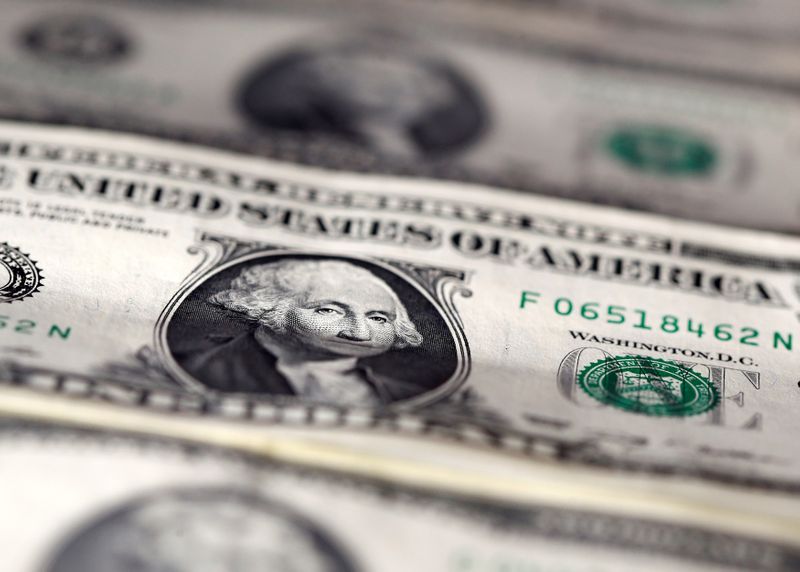By Stanley White
TOKYO (Reuters) - The dollar started Friday's trade on a shaky footing and was on course for a weekly loss as the U.S. Federal Reserve's massive new lending programme for small companies and signs of a slowdown in coronavirus infections reduced safe-haven demand.
The pound pulled ahead against the dollar and the euro as markets breathed a sigh of relief after British Prime Minister Boris Johnson left intensive care following his hospitalisation for COVID-19 symptoms.
Currencies from oil-producing countries also held onto gains against the U.S. currency, but the outlook remains uncertain as an agreement between Saudi Arabia and Russia to cut oil supply has failed to allay concern about massive oversupply.
Risk sentiment has steadily improved this week on tentative signs that the pandemic is slowing in U.S. and European hotspots, but some analysts remain cautious given so little is known about the virus and as many nations continue to grapple with the massive economic damage caused by the outbreak.
"The Fed has taken a lot of different measures, but the end result is a large increase in the supply of dollars," said Junichi Ishikawa, senior FX strategist at IG Securities in Tokyo.
"Positive news about the virus reduces the kind of panicked repatriation into dollars that we saw earlier this year. The end result is gradual dollar weakness."
Against the euro (EUR=EBS), the dollar last stood at $1.0930, on course for 1.2% weekly decline.
The dollar traded at 0.9660 Swiss franc
Trading is likely to be subdued on the day as financial markets in Australia, Hong Kong, Singapore, Britain, and the United States are closed for the Good Friday holiday.
The Fed on Thursday announced a $2.3 trillion programme to offer loans to local governments and small and mid-sized businesses, the latest step to backstop the U.S. economy as the country battles the coronavirus crisis.
The Fed has also slashed interest rates to zero, restated quantitative easing, and increased dollar liquidity to combat a shortage in money markets, leaving the dollar in the grip of bears in the spot market.
New York, the U.S. state most afflicted by the coronavirus, offered fresh evidence that the arc of the disease caused by the virus was flattening.
The greenback last traded at 108.51 yen
The coronavirus first emerged in China late last year and his since spread around the world, infecting more than 1.5 million and claiming more than 89,400 lives.
The Australian dollar
The pound
The British prime minister on Sunday became the first world leader to be admitted to hospital for persistent symptoms of COVID-19, the illness caused by the novel coronavirus.
This initially raised concerns about a leadership vacuum, but Johnson's condition has gradually improved.
The Canadian dollar

Investors reacted negatively to the emerging supply-cut agreement between members of OPEC and its allies by selling crude futures, suggesting these cuts may not be enough to offset an expected drop in global demand.